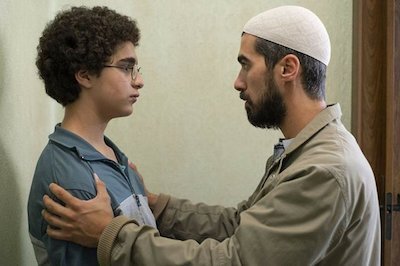Direction: Flavio Alves
Country: USA
Having the Bronx, New York, as a backdrop, The Garden Left Behind depicts the dreams, struggles and relationships of a young Mexican transgender woman. This feature debut from the New York-based Brazilian filmmaker Flavio Alves also marks the first appearance on screen by Carlie Guevara. Co-written by Alves and John Rotondo, the drama film has the particularity of having trans actors in all trans roles, using the same methodology for the Spanish-language characters. Even more peculiar is the fact that it became the first independent feature to be significantly funded through donations and sales via eBay.
Tina (Guevara), formerly called Antonio, drives an Uber to make a living. She has been in the US since the age of five but remains illegal, a predicament that makes her process of transitioning harder. Ever since, she's been living with her sympathetic grandmother, Emilia (Miriam Cruz), the only family she has left.
The occasional quarrels between them are never a threat to the strong bond, yet Tina has been going through a lot lately. She’s under the attentive psychological evaluation of Dr. Cleary (veteran actor Edward Asner), whose countless questions upset her; she joins an activist group of trans women against the recurrent discrimination, being consequently dumped by her boyfriend, Jason (Alex Kruz); and keeps struggling to find a job that feels like a good fit for an illegal alien. What she doesn’t suspect is that the quiet clerk of her neighborhood corner store, Chris (Anthony Abdo), has a secret crush on her.
With a compelling narrative and a surprising, heartbreaking finale, The Garden Left Behind satisfies as a whole. Yet, it couldn’t hide a couple of less effective scenes - like when grandma thinks she broke the vacuum cleaner - or when Guevara’s performance becomes subtly vacillating. Nevertheless, the heart of the film is in the right place, and the story serves both as a reflection about common immigration-related concerns as well as an alert for the intolerance and hatred that continuously leads to violence in America.


















































